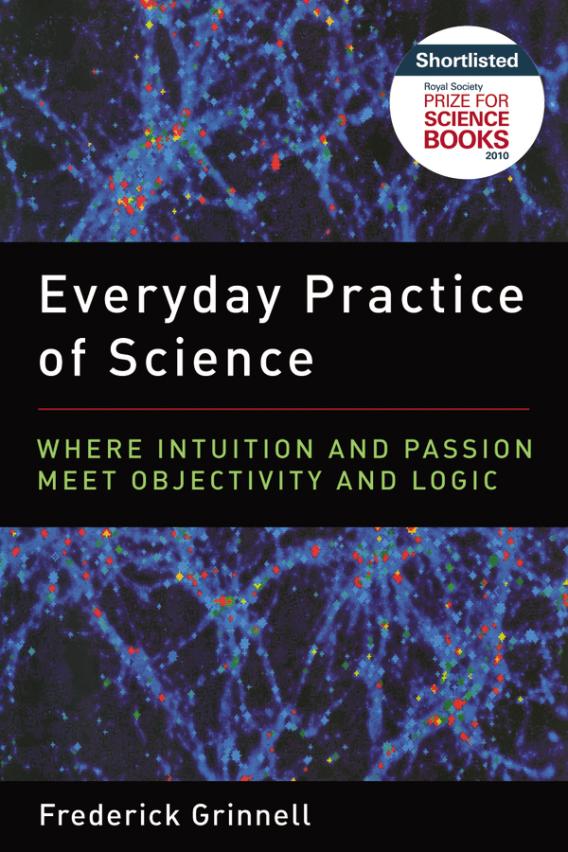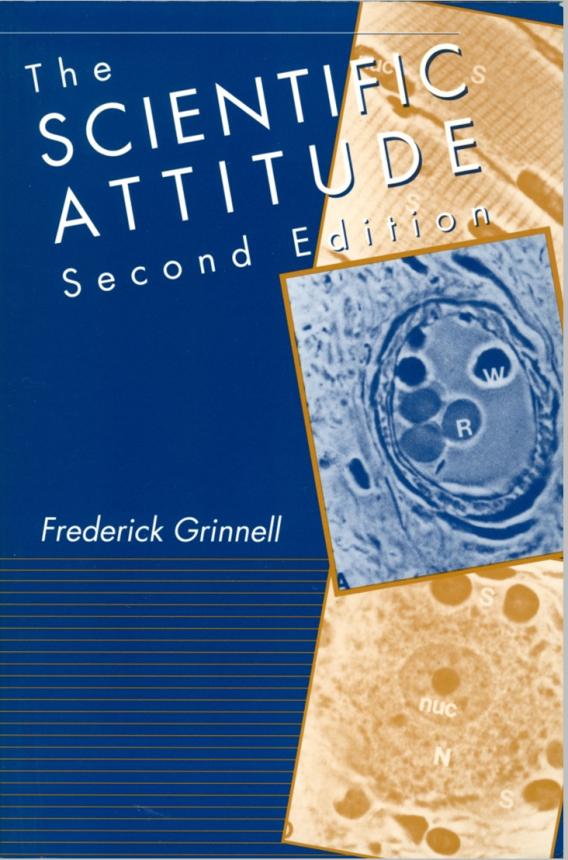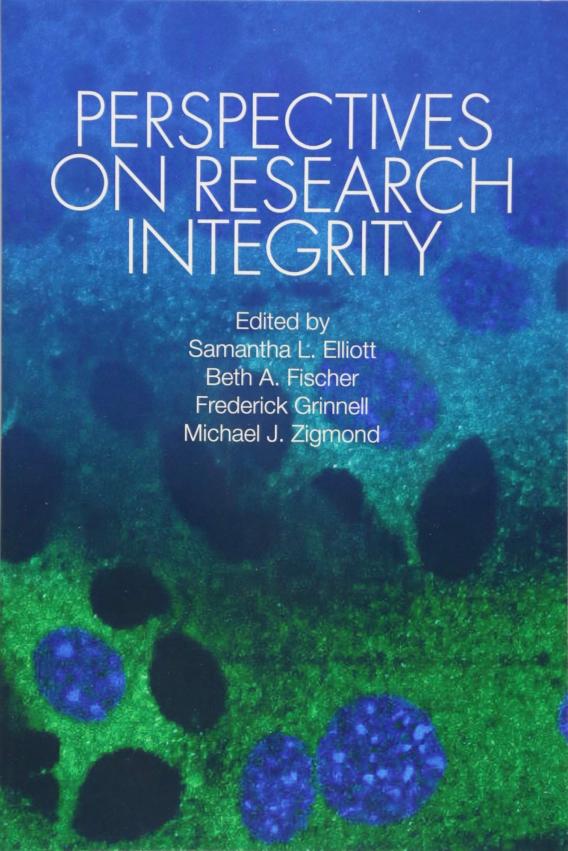Author

Everyday Practice of Science
Everyday Practice of Science: Where Intuition and Passion Meet Objectivity and Logic, Frederick Grinnell, 2009. Oxford University Press.
Scientific facts can be so complicated that only specialists in a field fully appreciate the details, but the nature of the everyday practice that gives rise to these facts should be understandable by everyone interested in science. Everyday Practice of Science describes how scientists bring their interests and passions to their work, illustrates the dynamics between researchers and the research community, and emphasizes a contextual understanding of science in place of the linear model found in textbooks with its singular focus on "scientific method."
Everyday Practice of Science was selected as a finalist for the 2010 Royal Society Prize for Science Books. The judges said, “This book looks behind the scenes and tells the story of what makes scientific minds tick and how scientific theories are made. A fascinating, personal account — essential reading for anyone with an interest in science, from pupil to politician.”

The Scientific Attitude
The Scientific Attitude, Frederick Grinnell, Second Edition, 1992. Guilford Press. (1st Edition, 1987, Westview Press)
The Scientific Attitude presents a systematic account of the cognitive and social features of science. The work is unique in its attempt to understand science in terms of day-to-day practice. The book goes beyond the traditional description of science, which focuses on method and logic, to characterize the scientific attitude as a way of looking at the world.
Editor

Perspectives on Research Integrity
Perspectives on Research Integrity, Samantha L. Elliott, Beth A. Fischer, Frederick Grinnell, Michael J. Zigmond, eds., 2015. ASMScience
Perspectives on Research Integrity addresses the need to provide ethics training early and often — in classroom settings and throughout a researcher’s career. Written by ethics and education experts, Perspectives on Research Integrity presents an enlivened discussion on the globally important topics of responsible conduct of research (RCR) and ethics education. It synthesizes the current state of RCR and considers future directives and requirements.